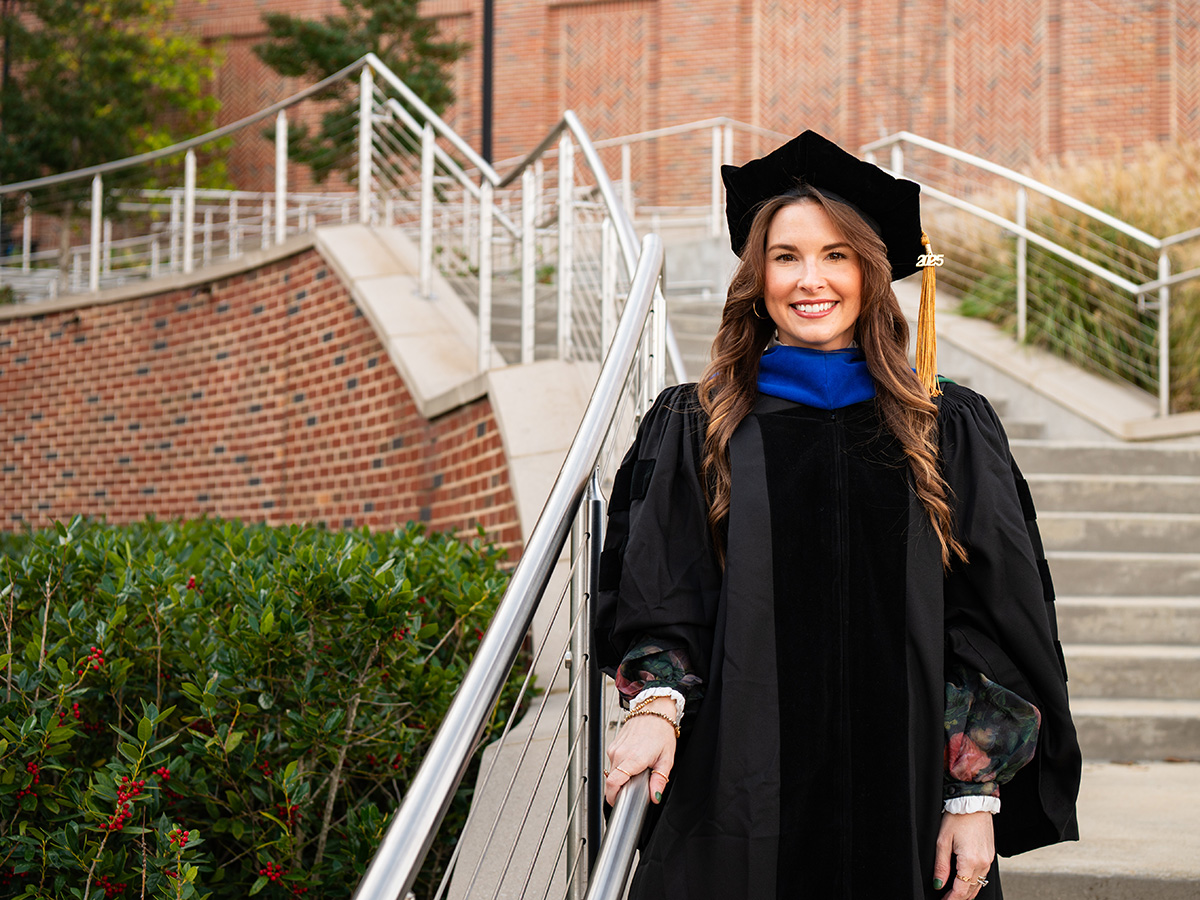 Remy Meir spent the spring semester of her junior year studying abroad in Oslo, Norway. Now she's returning to the University of Oslo on a Fulbright Scholarship to continue her research.
Remy Meir spent the spring semester of her junior year studying abroad in Oslo, Norway. Now she's returning to the University of Oslo on a Fulbright Scholarship to continue her research.
Editor’s Note: For the 2018-2019 academic year, UAB had a record number of students and alumni selected for the prestigious Fulbright Student Program, the flagship international exchange program sponsored by the U.S. government. Four of the six award recipients are from the UAB College of Arts and Sciences, including Remy Meir. An Auburn, Alabama, native, Meir has been awarded the Fulbright Study/Research grant to conduct research at the University of Oslo in Oslo, Norway. Meir graduated from UAB Honors College in Spring 2018 with a bachelor's degree in neuroscience. Her research project will focus on stress as a potential risk factor for addiction.
We’re excited to feature monthly posts from Remy as she chronicles her Fulbright experience, which begins this month at the University of Oslo.
By Remy Meir
I was sitting in the library at the University of Oslo in early March watching the snow fall outside the window when I realized that a semester in this beautiful country was not enough. I quickly pulled up my email to send a message to Dr. Ashley Kuntz, director of fellowships at UAB, to tell her about my time in Norway and that I already wanted to come back. She followed up by sending me all the information I would need to start an application for the J. William Fulbright Scholarship. The Fulbright Program provides grants that are aimed to enhance cultural exchange between the United States and other countries through research, study, and teaching opportunities.
While previously studying abroad in Norway, I worked under the guidance of Dr. Siri Leknes and helped design a human model that would address the role of stress in addiction. My previous research at UAB, in the lab of Dr. Robert Sorge, was all in rodent models, so much of my time in the Leknes lab was spent discussing the differences in animal and human research models. Having this scientific exchange allowed me to understand that the scientific questions I am interested in are multifaceted. It also opened my eyes to translational research and had me eager to explore this area of addiction research further.
To date, most addiction research has relied on rodent models, and few translational studies have been done. According to the National Institute on Alcohol Abuse and Alcoholism (NIAAA) Clinical Director Dr. Heilig, most promising treatments in rodents fail once they reach human clinical studies. To close this translational research gap, we need to explore social factors, such as stress and social support, in addition to standard drug interaction studies.
 Norway is the ideal place for me to continue to explore this topic because their society allows for a greater investigation into these social interactions as behavior-influencing mechanisms, as they have reduced the stigma surrounding drug addiction that is still overtly present in the United States. This focus on drug addiction is supported by their government’s commitment to making prevention of drug and alcohol abuse a public health priority. Additionally, the Leknes Affective Brain Lab is the ideal lab for my project given their focus on understanding how the human brain encodes value in regard to reward and how this understanding can be used to improve treatments for substance abuse disorder and chronic pain.
Norway is the ideal place for me to continue to explore this topic because their society allows for a greater investigation into these social interactions as behavior-influencing mechanisms, as they have reduced the stigma surrounding drug addiction that is still overtly present in the United States. This focus on drug addiction is supported by their government’s commitment to making prevention of drug and alcohol abuse a public health priority. Additionally, the Leknes Affective Brain Lab is the ideal lab for my project given their focus on understanding how the human brain encodes value in regard to reward and how this understanding can be used to improve treatments for substance abuse disorder and chronic pain.
With Dr. Leknes continuing as my mentor, my project in Norway will focus on using an interdisciplinary model to explore how psychosocial stress can translate into increased vulnerability for addiction and the extent to which addictive drugs and social support act on overlapping pathways in the brain. While stress has primarily been studied as a factor for addiction relapse, this study takes a novel approach by assessing the role it may play in the initial development of addiction. This study could prove to be very beneficial by influencing the development of new interventions and policies regarding addiction. According to the World Health Organization, an estimated 15 million people suffer from opioid dependence, yet only 10 percent receive treatment. These statistics make it evident that this should be a public health and scientific priority across international borders. Hopefully, my time as a Fulbright Scholar will allow me to shed more light on this topic while having the adventure of a lifetime.


